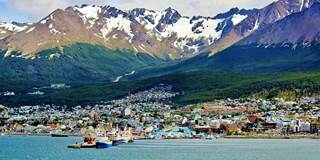With Latin American voters turning away from their populist leaders, many speculate that the “pink tide” that has pushed the region to the left over the last 15 years is finally turning. But the defeat of incumbents across the region largely reflects declining commodity prices, not ideological opposition.
MEXICO CITY – Demagogues and populists like US presidential candidate Donald Trump and French National Front leader Marine Le Pen are setting Western politics alight. But in Latin America, populist leaders are losing support: Argentina’s Cristina Kirchner has just been voted out of office; in Venezuela, President Nicolás Maduro’s Socialists suffered a resounding defeat in midterm elections; and Brazilian President Dilma Rousseff now faces the prospect of impeachment. Many are speculating that the “pink tide” of populism, which has pushed the region to the left over the last 15 years, now is turning. But is it really populism that these countries are rejecting?

MEXICO CITY – Demagogues and populists like US presidential candidate Donald Trump and French National Front leader Marine Le Pen are setting Western politics alight. But in Latin America, populist leaders are losing support: Argentina’s Cristina Kirchner has just been voted out of office; in Venezuela, President Nicolás Maduro’s Socialists suffered a resounding defeat in midterm elections; and Brazilian President Dilma Rousseff now faces the prospect of impeachment. Many are speculating that the “pink tide” of populism, which has pushed the region to the left over the last 15 years, now is turning. But is it really populism that these countries are rejecting?